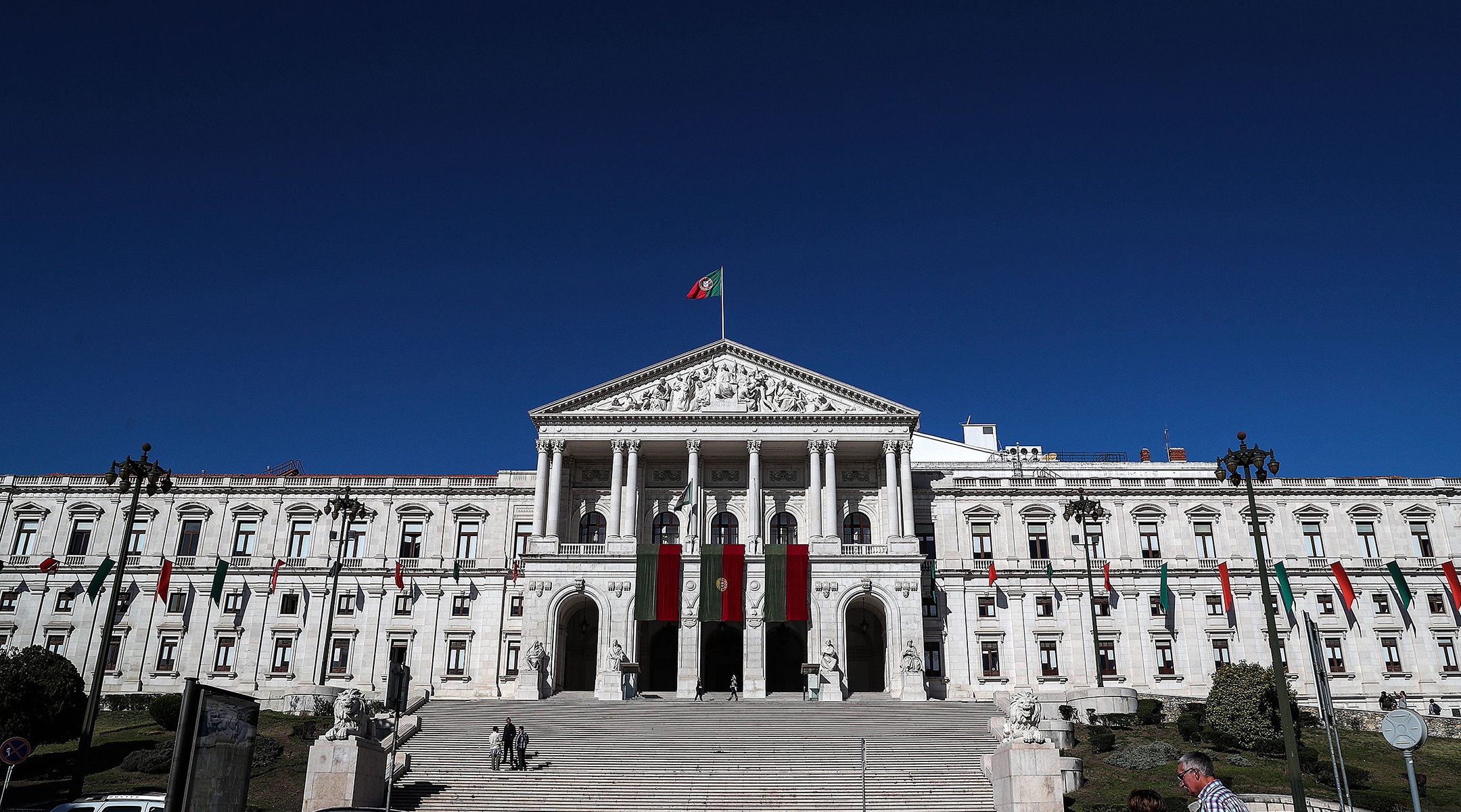Portugal moves to end Sephardic Jewish citizenship law
Portugal’s justice minister said it was a “symbolic gesture intended to mark a recognition that has been fulfilled through a generous time window”

The Portuguese parliament building is seen in Lisbon, Oct. 25, 2019. (Carlos Costa/AFP via Getty Images)
MADRID (JTA) — Portugal’s parliament has advanced a bill that would end the country’s citizenship law for descendants of Sephardic Jews who were expelled during the Spanish Inquisition.
The bill, which could take effect on Jan. 1, passed a first reading on Friday with backing from the ruling Socialist Party after heated debate. It will next be reviewed and potentially amended by parliament’s Constitutional Affairs, Rights, Freedoms, and Guarantees Committee.
Speaking to parliament on Monday, Justice Minister Catarina Sarmento e Castro said the citizenship law has been a “fair recognition” and a “duty of historical reparation.” But she argued that it has served its purpose, saying it was a “symbolic gesture intended to mark a recognition that has been fulfilled through a generous time window.”
Discussions in parliament over the next several weeks could push the end date for applications to Dec. 31, 2024.
According to the latest figures, approximately 262,000 individuals had applied for naturalization under the law by the end of 2022, and around 75,000 were granted citizenship. Even since the introduction of stricter regulations in September 2022, over 74,000 applied in the past year. Notably, nearly 21,000 applicants were Israeli citizens, as highlighted by statistics from the Portuguese Immigration and Border Service.
Some members of parliament expressed reservations about the move to close the citizenship pathway. Representative Patrícia Gilvaz of the Liberal Initiative party argued against shutting down the law so soon, suggesting a postponement until 2025. Pedro Delgado Alves from the Socialist Party acknowledged the need for a review, suggesting a three-year residence requirement in Portugal for applicants rather than the standard five years.
But the Communist Party’s Alma Rivera questioned the law’s continued relevance. In contrast, Paula Cardoso from the Social Democratic Party suggested addressing abuses of the application system without repealing it altogether.
Portugal introduced this route to citizenship in 2015, rooted in 2013 legislation, and Spain soon followed suit with a “Law of Return.” Unlike Spain’s version, Portugal’s law was less stringent, demanding only a clear criminal record and verifiable Sephardic lineage certificate, typically vouched for by major Jewish communities in Lisbon or Porto.
That application process faced skepticism last year following allegations of fraud and corruption. One high-profile case involved Roman Abramovich, a Russian-Jewish billionaire whose Portuguese naturalization drew criticism amid geopolitical events, particularly Russia’s Ukraine invasion, as it emerged that his European citizenship could potentially help him avoid European sanctions on Russian oligarchs.
In light of the controversies, the vetting process tightened. Foreign Minister Augusto Santos Silva noted that Sephardic Jewish applicants had to establish a “genuine connection” with Portugal. The stricter regulations also spurred divisions within the country’s Jewish communities, leading to legal investigations into Porto’s application review process and the detention of the Porto Jewish community’s Rabbi, Daniel Litvak.
Spain stopped accepting applications for its Sephardic citizenship law in 2021.
This article originally appeared on JTA.org.























